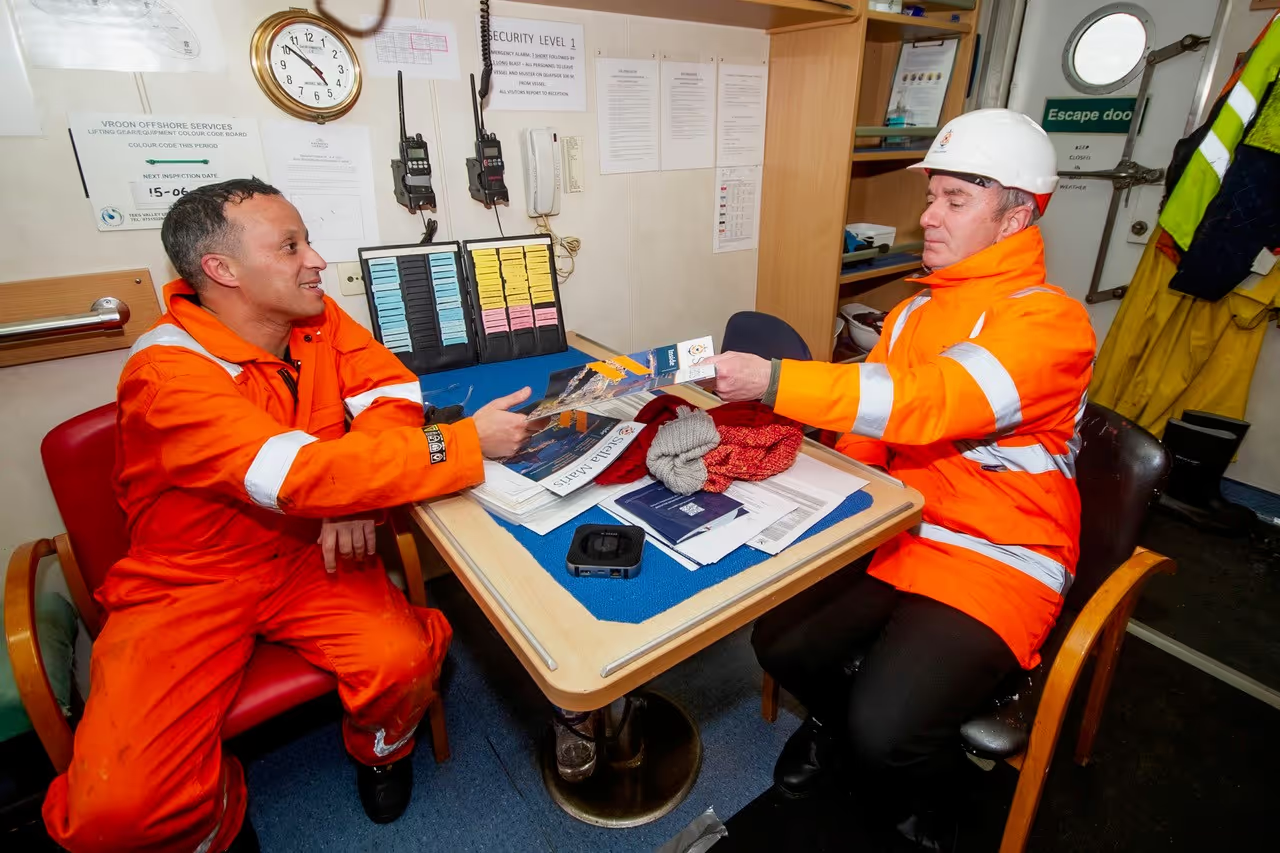
“Some of the seafarers I meet have travelled through the conflict area of the Red Sea, with its risks of attacks from Houthis, then have sailed on to the Black Sea with its own dangers, given there is no agreement on maritime safety,” says Stella Maris’ Odesa port chaplain Fr Alex Smerechynskyy in Ukraine.
As a result of the conflict in Gaza, ships sailing through the Red Sea face the threat of Houthi missiles, drone attacks and raiding parties. Since last November, the Houthis have targeted more than 80 merchant vessels.
Ships bound for Ukraine are now regarded by Russia as potential carriers of military cargo, making them legitimate targets. This follows the collapse of the UN Black Sea grain initiative to create a safe corridor for ships carrying Ukrainian food and fertilizer.
Catholic charity Stella Maris (formerly called Apostleship of the Sea) is one of the few maritime charities with chaplains based in Ukraine. They carry out ship visits from the southern port city of Odesa. Here they work with seafarers on the frontline, witnessing the impact it is having on them.
Many shipowners are not allowing crew members to go ashore during their time in Odesa, for security reasons. So visits on board ships by the Stella Maris team there are proving increasingly important in countering the isolation and loneliness that seafarers often experience.
“Seafarers have signed on knowing the risks and receive additional pay as a result, but there is no respite for them and that has an effect,” says Fr Alex. “Once here in Odesa they can witness the drone attacks on the port and the city at close hand. This only adds to their stress and anxiety.”
Being a seafarer is a tough job at the best of times. You are away from home for months, you work long hours, and you face possible accidents at sea. But ships being hit by bombs or missiles is an additional problem facing seafarers currently – and not the only one. There is now an alarming rise in cases of seafarers abandoned by shipowners: left in distant ports without money, support, or the means to get home.
Deacon Joe O'Donnell, Stella Maris’ Senior Area Port Chaplain for Scotland helped an Indian crew recently. They had not received their wages for several months and were abandoned in Troon in south-west Scotland. "We supplied groceries, clothing, and free mobile phone SIM cards so they could talk to their families back home," he said. "The crew were also under a huge mental strain, with no money, no means of getting home and absolutely no idea what their future is. So we offered them pastoral support and reassurance. Following our intervention, the crew was paid and returned home."
What happens on global shipping routes affects us all because much of the food and other products in our shops arrive on ships. That is everything from fish and fruit to computers and cars. We rely on seafarers and fishers perhaps more than we realise.
This year's Gospel for Sea Sunday (Mark 6: 7-13) emphasises the importance of service and hospitality for strangers as a sign of Christ's love. In this reading, Jesus instructed the disciples to take almost nothing with them - so they had to rely on the providence of God on their travels - and the generosity of the people they would stay with on the journey. Those people would be strangers to them - but the disciples were reliant on their hospitality.
When seafarers arrive in a foreign port, they are strangers, often thousands of miles from home. Stella Maris’ chaplains and volunteer ship visitors welcome them, listen to their concerns, and help provide what they need. The Stella Maris teams answer Jesus' call to give hospitality to the stranger. They put their faith into action.
On Sea Sunday, which falls on 14 July this year, let us pray for seafarers, fishers, and the work of Stella Maris. Let us remember especially those seafarers who are sailing through conflict zones and those who have been abandoned in distant lands.